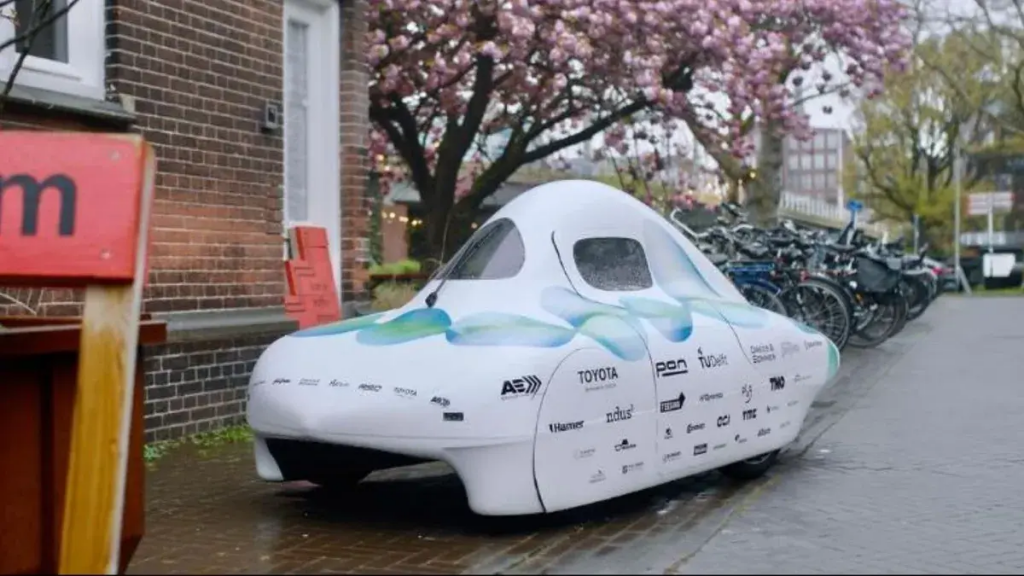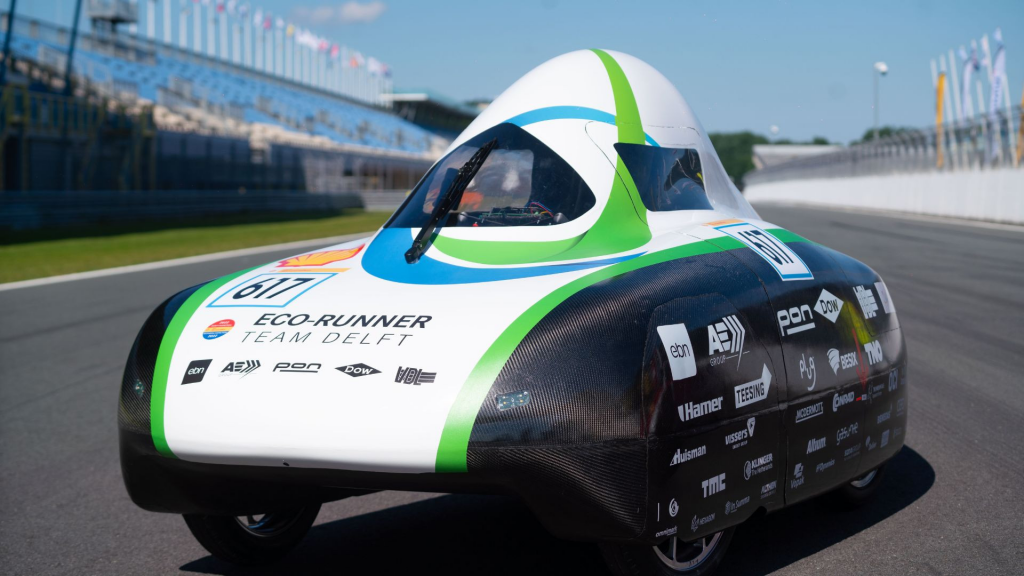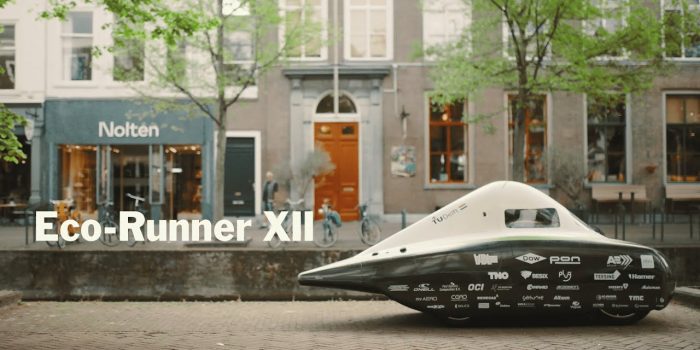Imagine a car that can travel over 1242 miles (2000 kilometers) on a single tank of hydrogen, offering a glimmer of hope in a world striving for sustainable energy solutions amidst the challenges of climate change.
The Eco-Runner Team Delft, driven by the pursuit of efficient energy technologies, is determined to set a new world record for the farthest distance traveled by a hydrogen vehicle without refueling. Recently, they unveiled their latest creation, Eco-Runner XII, as they continue to enhance the design and aerodynamics of their hydrogen-powered city car.
Originating from the Delft University of Technology in the Netherlands, a dedicated team of 23 students is behind this innovative project. With each passing year, their goal is to surpass previous records by refining the vehicle’s design and aerodynamics.

The journey began with their prototype, Eco-Runner I, which participated in the Shell Eco-marathon, a global competition focused on energy efficiency, in 2005. At that time, the car achieved an impressive efficiency rating of 346m/L (557km/L) of hydrogen, placing among the top five entries. Building on this early success, their most recent model, Eco-Runner XI, shattered expectations in 2022 by covering a non-stop distance of 743 miles (1196 kilometers) in 36 hours, setting a new world record for the longest journey undertaken by a hydrogen vehicle.
Confident in their progress, the Eco-Runner Team Delft believes that their latest creation, Eco-Runner XII, has evolved into the “world’s most efficient, hydrogen-powered city car.”
Weight reduction was a paramount objective during its development, as energy consumption is directly influenced by the car’s mass. The Body department focused on constructing an aerodynamic shell and lightweight load-carrying structure, employing carbon fiber to replace heavier steel components such as suspension beams and pushrods, thereby significantly reducing the car’s overall weight.
Efficiency also stems from minimizing internal energy losses, including rolling resistance, air drag, and the conversion of hydrogen to electricity or electricity to kinetic energy in the motor. Addressing these concerns, the team designed a highly efficient electric motor tailored to reduce energy losses and improved the powertrain system with a brand-new fuel cell that meets their requirements.
In their quest for optimal performance, the team arrived at a unique bubble-car shape, optimizing aerodynamic drag and weight reduction. Weighing a mere 147 pounds (67 kilograms), the car achieves a top speed of 15.5 mph (25km/h).
Competition within this segment has been intense, with Toyota surpassing the Eco-Runner XI’s achievements in October 2021, covering 845 miles (1360 kilometers) without refueling. In addition, another formidable competitor, ARM Engineering, emerged in 2022, demonstrating the potential of fuel cell technology by driving for 40 consecutive hours and covering an impressive distance of 1276 miles (2055.68 kilometers) on a single hydrogen tank.

Undeterred by these advancements, the Eco-Runner Team Delft’s pursuit of efficient energy technologies and sustainable transportation solutions is an inspiration, providing hope for a greener and more environmentally conscious future.
With their upcoming record attempt scheduled for June, the team’s unwavering dedication may once again redefine what is possible in the realm of hydrogen-powered vehicles.


